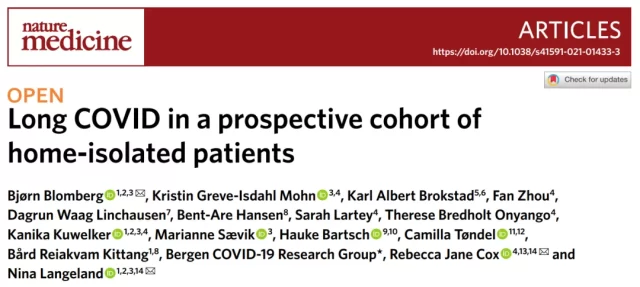Heart disease soars in patients with COVID-19 recovery even from mild diseases
- Normal Liver Cells Found to Promote Cancer Metastasis to the Liver
- Nearly 80% Complete Remission: Breakthrough in ADC Anti-Tumor Treatment
- Vaccination Against Common Diseases May Prevent Dementia!
- New Alzheimer’s Disease (AD) Diagnosis and Staging Criteria
- Breakthrough in Alzheimer’s Disease: New Nasal Spray Halts Cognitive Decline by Targeting Toxic Protein
- Can the Tap Water at the Paris Olympics be Drunk Directly?
Heart disease soars in patients with COVID-19 recovery even from mild diseases
- Should China be held legally responsible for the US’s $18 trillion COVID losses?
- CT Radiation Exposure Linked to Blood Cancer in Children and Adolescents
- FDA has mandated a top-level black box warning for all marketed CAR-T therapies
- Can people with high blood pressure eat peanuts?
- What is the difference between dopamine and dobutamine?
- How long can the patient live after heart stent surgery?
Nature’s attention: Heart disease soars in patients with COVID-19 recovery even from mild diseases.
Since the outbreak of the COVID-19 epidemic, human beings’ cognition of the virus has been constantly refreshed.
It is obvious that the COVID-19 pandemic has caused incalculable losses to the world economy and has profoundly affected the social order of mankind.
The receptor ACE2 of the new coronavirus is a receptor protein widely distributed in the human body, mainly in organs and tissues such as the respiratory tract , intestine , kidney , heart and testis .
Many studies have pointed out that the new coronavirus infection will not only bring disease and death, but also cause other complications, and cause sequelae of varying degrees and symptoms after the patient recovers.
Common sequelae include loss of smell , fatigue, dyspnea, arthralgia, chest pain and even depression .
On December 2, 2020, Nature published an article titled: Could COVID delirium bring on dementia? [1] The global pandemic of the COVID-19 has caused many patients to develop delirium , which may lead to global dementia in a few years. A surge in patients.

On June 23, 2021, the top international medical journal Nature Medicine published a research paper titled: Long COVID in a prospective cohort of home-isolated patients [2] .
A survey of 312 patients with COVID-19 pneumonia in Norway found that more than half Home-isolated young adults (16-30 years old) with mild symptoms developed long-lasting symptoms of dyspnea, loss of taste and smell, fatigue, or poor concentration and memory for 6 months after initial infection .

On August 28, 2021, the top international medical journal The Lancet published a research paper entitled: 1-year outcomes in hospital survivors with COVID-19: a longitudinal cohort study . Researchers from the Academy of Sciences, China-Japan Friendship Hospital, and Jinyintan Hospital jointly completed the largest longitudinal cohort study on the 1-year follow-up of discharged COVID-19 survivors so far . One of the abnormal symptoms such as muscle weakness, sleep disturbance, hair loss, loss of smell, heart palpitations, and joint pain .

These studies have reminded us that after being infected with the new coronavirus, even if you recover, there may still be long-term sequelae , so some people call it ” Long COVID ” .
On February 7, 2022, researchers from Washington University in St. Louis published a research paper titled: Long-term cardiovascular outcomes of COVID-19 in the top international medical journal Nature Medicine [4] .
The research team analyzed a large database of health records managed by the U.S. Department of Veterans Affairs, comparing more than 150,000 veterans who survived Covid-19 for more than 30 days with two groups of people who did not.
This large-scale study shows that people who recover from infection with the new coronavirus ( SARS-CoV-2 ) have a significantly increased risk of cardiovascular disease , including heart disease and stroke , within a year , such as a 52% increased risk of stroke, Heart failure risk increased by 72%.
What’s more, even those under the age of 65 who do not have cardiovascular disease risk factors such as obesity, smoking, and diabetes have a significantly higher risk of developing cardiovascular disease after contracting the COVID-19.

The study showed that 30 days after infection with COVID-19, patients had a significantly increased risk of cardiovascular disease, including cerebrovascular disease, arrhythmias, ischemic and non-ischemic heart disease, pericarditis, myocarditis, heart failure and thrombosis Embolic disease.
These cardiovascular disease risks were significantly increased even in mildly ill patients who were not hospitalized.
Overall, the risk increased from mild non-hospitalization, hospitalization, to intensive care.
Our results provide evidence that patients with Covid-19 are at substantial risk of developing cardiovascular disease within one year of recovery, so care for recovered Covid-19 patients should include attention to cardiovascular health and disease.

Overall, this comparative study showed that people who recovered after being infected with the new coronavirus ( SARS-CoV-2 ) had a substantially increased risk of developing cardiovascular disease , including heart attack and stroke , within a year .
Among them, severe patients hospitalized after infection are more likely to develop cardiovascular disease in the future, but those with mild symptoms also face increased cardiovascular risk.
This also suggests the importance and urgency of vaccinating against the COVID-19, because vaccination can effectively prevent the severe disease of the COVID-19.
References :
1.https://www.nature.com/articles/d41586-020-03360-8
2.https://www.nature.com/articles/s41591-021-01433-3
3.https://doi.org/10.1016/S0140-6736(21)01755-4
4.https://www.nature.com/articles/s41591-022-01689-3
5.https://www.nature.com/articles/d41586-022-00403-0
Heart disease soars in patients with COVID-19 recovery even from mild diseases
(source:internet, reference only)
Disclaimer of medicaltrend.org
Important Note: The information provided is for informational purposes only and should not be considered as medical advice.



